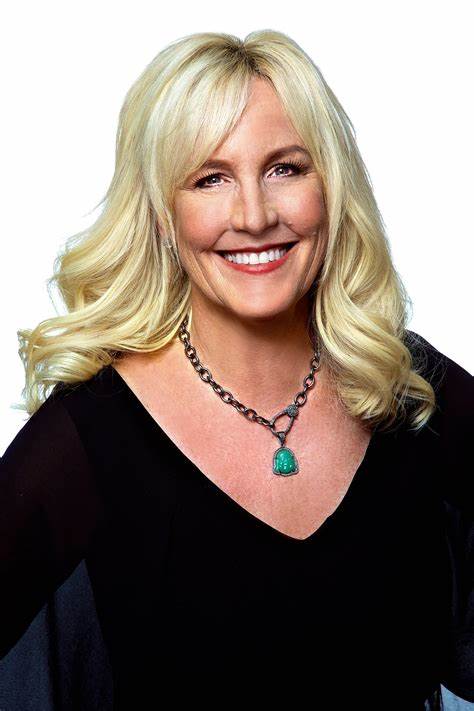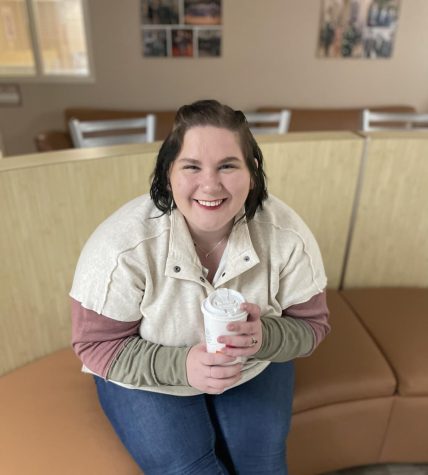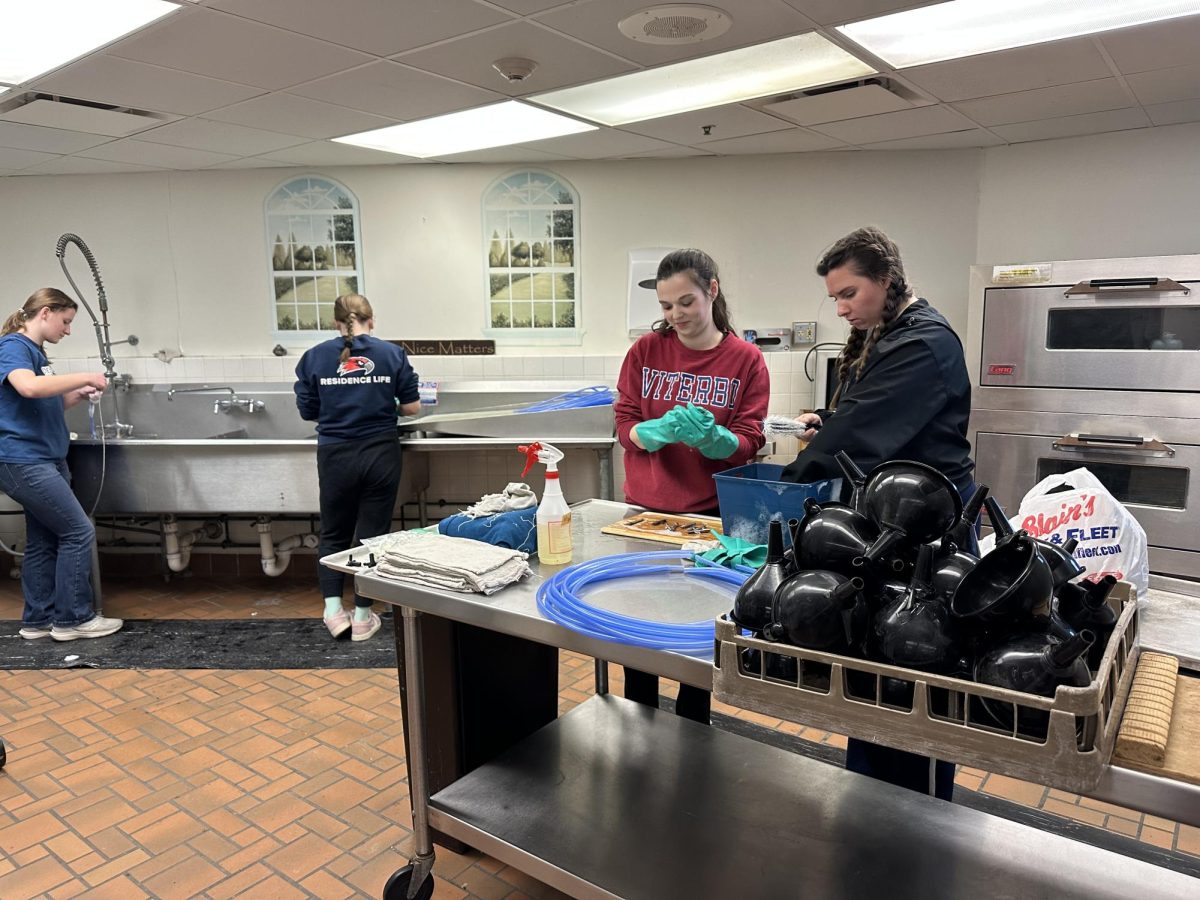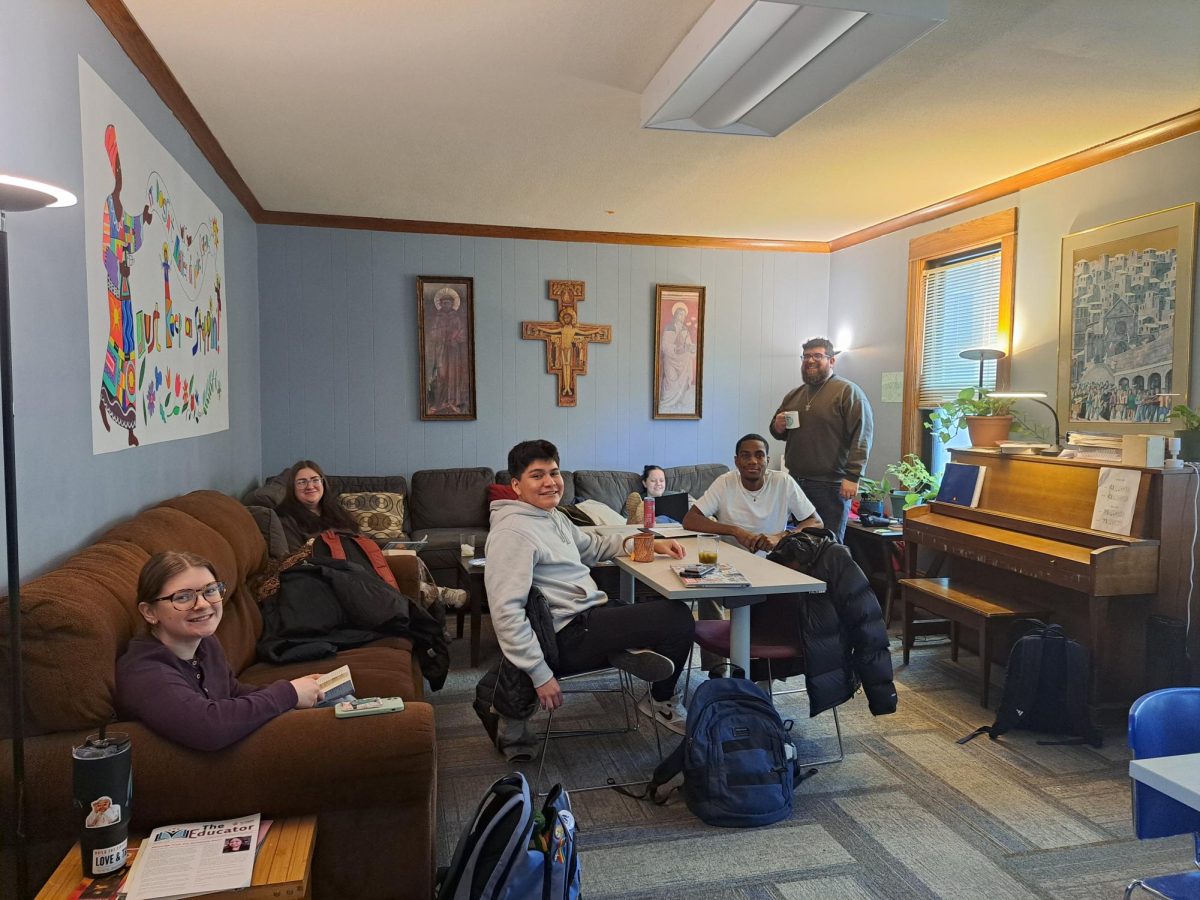Erin Brockovich: What’s in Our Drinking Water?
April 10, 2022
The Viterbo community graciously welcomed Erin Brockovich, environmental activist, legal clerk and consumer advocate, to present “What’s in Our Drinking Water?” as a part of the Agnes W. H. Tang Science Symposium on March 24. The event took place in the Fine Arts Center Main Theater and was also streamed on the Viterbo University D.B. Reinhart Institute for Ethics Facebook page. Brockovich was welcomed by Jamie O’Neill, STEM event and outreach coordinator at Viterbo. She shared her stories that led up to the creation of the symposium. Brockovich was then given the floor for the rest of the presentation.
“Hi, I am Erin Brockovich, not Julia Roberts,” was the opening line of the presentation. “Not that it would be a bad thing,” she continued, “but it caused a lot of confusion for a whole lot of people.” Brockovich is of course referring to the 2000 movie “Erin Brockovich” in which Julia Roberts played the title character. The movie is a biography about how Brockovich discovered the need for better drinking water while tackling life as a single mom. Roberts won an Oscar for her performance.
Brockovich told the audience of how she learned about the environment by being out in it. She’s always been amazed by nature: the storms, the smell, everything about it. “One of the main reasons I was playing around outside is because I did not like school,” she says. Brockovich went on to disclose her struggles with dyslexia and how she learned to overcome her disability through nature. It enabled her to become who she is today.
After sharing her backstory of growing up in Kansas, Brockovich delved into her famous case in Hinckley, Calif. “I don’t have to be anything to be a human and tell you that those two-headed frogs and green water is a bunch of B.S.,” Brockovich stated. This line launched her journey into discovering what was responsible for contaminating drinking water around the United States.
Encouragement was a major theme of Brockovich’s speech. “You are the answer,” she insisted. “You are the one living and breathing.” She encourages all who attended to recognize any discontinuity in our respective communities and bring it to attention so that change can be done. Without this motivation, Hinkley would not have been amended. We then got a glimpse into Brockovich’s Community Healthbook, a site that she developed so communities can stay connected and raise awareness of any disheartening occurrences in their neighborhoods.
Attendees were given an update on the Flint, Mich. crisis from years ago. Money was a factor, according to Brockovich, and once people knew about the crimes, the city was rebuilt with better pipes and new water supplies. The people in charge of Flint’s unhealthy change were also charged and put in jail for what they did to the greater health. Brockovich told this story to demonstrate how awareness can be enough to make a change, especially when it comes to the health of the greater community.
Cities around the country are thinking less about health and more about saving money. Without people like Brockovich, they are able to get away with their poor decisions. Brockovich’s powerful presentation on how we all need to focus on the environment was eye-opening for all in attendance. Her dedication to the greater good is necessary for cities to survive.



